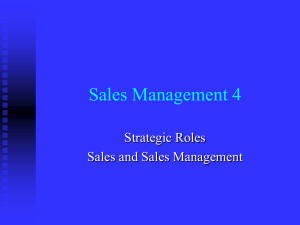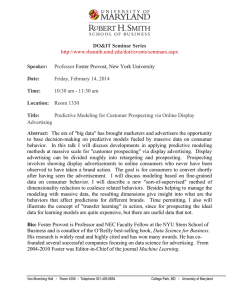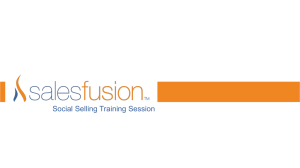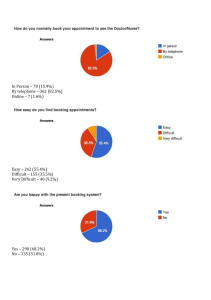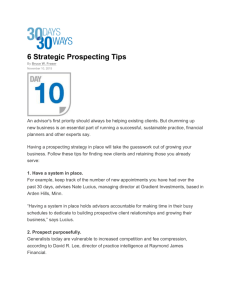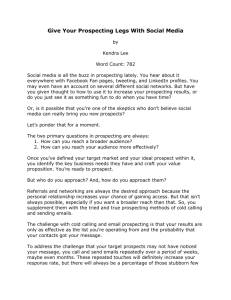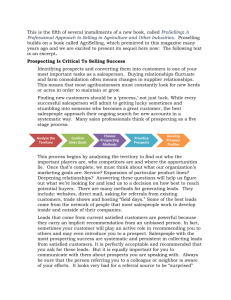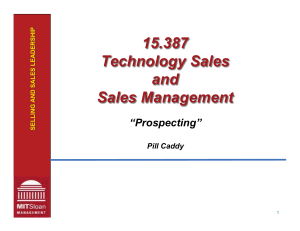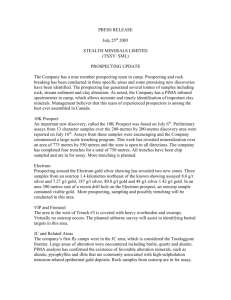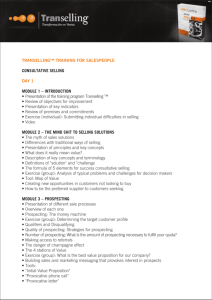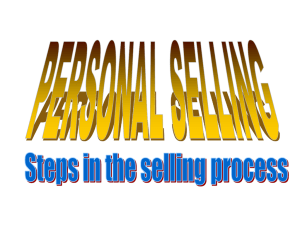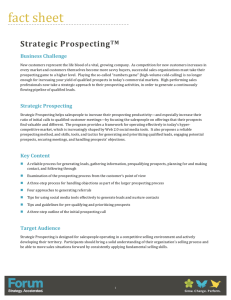Chapter 14 - Direct Marketing
advertisement
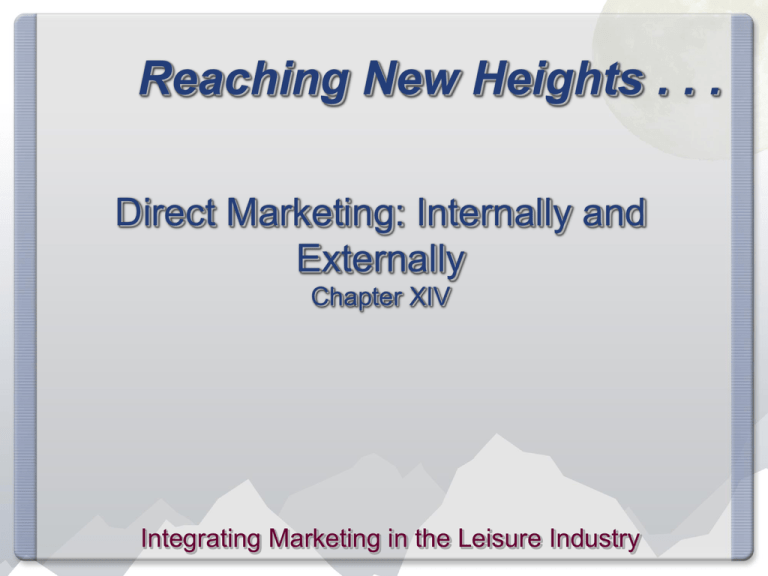
Reaching New Heights . . . Direct Marketing: Internally and Externally Chapter XIV Integrating Marketing in the Leisure Industry Direct Marketing Direct marketing is a form of personal selling that creates and establishes an intimate relationship between a seller and an individual consumer. Personal selling is a one-on-one or one-on-small group personal presentation designed to gain commitment from individuals/agencies to be consumers. Developing a Workforce of Sales People • • • • • Establish a culture that supports positive sales skills from all staff members Train employees on positive, effective sales techniques Establish agency expectations through stated sales functions on all employee job descriptions Reward employees that exhibit effective sales skills Provide tools for staff to develop internal and external relationships Advantages of Direct Marketing More personalization, direct, personal contact to establish a one-on-one relationship • Faster ability to respond to consumer inquiries, questions and concerns • Allows for two-way personal communication to occur • Greater personalization develops staff and consumer relationships • Better understanding of individual consumer needs and reactions Ability to use this form of communication as reinforcement to other forms of communication or as a stand-alone activity Direct Marketing Options for Agencies • • • • • • Sales presentations, tours and meetings Seminars, workshops or training programs Door-to-door distribution Telemarketing Direct sales letters Network or multi-level marketing consumer support centers • Lead referral programs • Sales blitzes • Trade shows Selecting the Direct Marketing Activities • • • • Understand the target market and how it can be reached Learn which methods produce the best results Utilize effective design formats and messages Consider resource limitations including budget, timeframe, and expertise Direct Sales Process Strategic Sales Cycle • 8 steps process • Skills are developed not innate • Practice • Teach others Strategic Sales Cycle – First 3 Steps Prospecting Planning Preparing Sample Prospecting Tools • • • • • • • • • Feasibility Study Guest History Report (database of past guests) Sales Prospector Business section of local newspaper Sales Blitz Reports Past Sales Call Reports and files Referrals from existing customers Business Journals A trade show attendee list or people dropping off business cards for an agency's raffle. Strategic Sales Cycle – Last 5 Steps Rapport Development Probe Close Support Summarize Direct Marketing and Personal Sales Examples • • • • • • Conduct a sales blitz of the local area to obtain prospecting leads Attend a trade show Obtain written testimonials of satisfied community members that could be shared with other potential patrons Present to the local boy scouts about the benefits of healthy living Tour a potential group contact around the facility highlighting the features that match the benefits he/she is seeking Develop an incentive for staff who refer groups Write personal letters/make personal contact with individuals who have referred groups Internal Marketing Internal marketing is a strategic approach for communicating through employees or other stakeholders to reach targeted markets. Common characteristics of internal marketing definitions: • Employee motivation and satisfaction oriented • Customer orientation and satisfaction oriented • Integration focused • Marketing approached • Implementation of specific strategies Internal Marketing Activity Examples • • • • • Inter-departmental and cross training Employee newsletter Employee bulletin board Table tents, paycheck stuffers and other collateral Employee business cards with highlighted promotions • Employee sales incentives • Paycheck stuffer Benefits of Internal Marketing • • • • • • • Expanded market awareness Expanded sales force More knowledgeable staff and satisfied consumers More satisfied staff More loyal staff Establishes a competitive advantage More business
